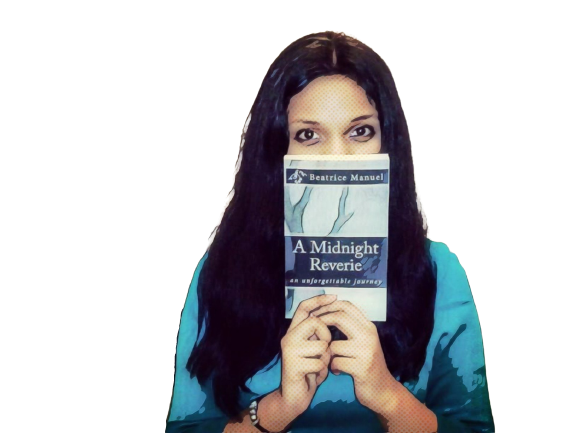
“Revolutionary Road” by Richard Yates
★★★★★
In the hopeful 1950s, Frank and April Wheeler appear to be a model American couple: bright, beautiful, talented, with two young children and a starter home in the suburbs. Perhaps they married too young and started a family too early. Maybe Frank’s job is dull. And April never saw herself as a housewife. Yet they have always lived on the assumption that greatness is only just around the corner. But now that certainty is now about to crumble. With heartbreaking compassion and remorseless clarity, Richard Yates shows how Frank and April mortgage their spiritual birthright, betraying not only each other, but their best selves.
What. A. Novel.
Revolutionary Road had been on my to-read list for the longest time but I had repeatedly put it off, hearing from friends and acquaintances that the subject matter was ‘dreary and depressing’. Not that I have anything against heart-wrenching novels but in my mind, the prospect of reading about a failing marriage for a couple who deluded themselves into chasing the grand illusion of the ‘American Dream’ could wait.
And if you’re putting it off too: stop. Wait no longer. Grab your copy of Richard Yates’ brilliant masterpiece and devour it. Afterward, watch the feature movie starring none other than the marvellous Leonardo DiCaprio and captivating Kate Winslet. That’s what I did and boy, was that an emotional ride.
April and Frank Wheeler are the textbook definition of that adventurous, explorative couple that blindly believe they are better than the rest of the world; a world confined to a dull existence that goes hand in hand with conformity in suburban America. Or at least, they try to be.

However, that’s where the satirical elements come in. I couldn’t help but laugh and snort derisively through April and Frank’s (multiple) heated arguments. They say communication is key in a relationship and I couldn’t agree more but the two, as much as they talk (with Frank doing the majority of the talking) fail to grasp each other’s feelings. Communication is dead if there is no attempt made to truly understand and relate to what the other is going through or trying to express. And that’s where Frank and April fall short, amidst several other things.

The two entertain a shared illusion of superiority, characterised by their arrogance in running after the ‘American Dream’ while belittling those around them. However, they refuse to confront their own shortcomings and this is where the real tragedy lies – not in being trapped to a dull routine-based life but in their inability to face their own demons, instead choosing to find excuses for their dissatisfaction in other things.
“It’s a disease. Nobody thinks or feels or cares any more; nobody gets excited or believes in anything except their own comfortable little God damn mediocrity.”
Although I heavily disliked the characters themselves, I couldn’t help but amaze over the beautiful way in which they are etched out throughout the novel by Yates. Frank Wheeler, to put it into today’s colorful lingo, is full of bullshit. I do not wish to dwell too much into the details of his persona, nor the (slightly) favorable character development once the ghosts of his past are revealed, but Frank is poison to April as much as she is to him.
Here are two lonely souls that strive so hard to be this ‘perfect couple’ that the neighborhood views them as, but beyond the facade of their effortless partnership lies the wistfulness of having rushed and projected the promise of happiness and perfection onto the wrong person. Yates illustrates the dangers of romanticizing irrational dreams into theatrical possibilities, in place of accepting one’s limitations in a society driven by conformity.

“You’re painfully alive in a drugged and dying culture.”
The character spotlight extends beyond Frank and April Wheeler, with one particular favorite being John Givings. John’s character represents exactly what Frank and April strive to be but tragically fail at. He is a symbol of rebellion against the routine and conventional societal values of the 1950s. Described and no doubt viewed by the two as a “nut case” for having been wheeled off to an insane asylum, he’s probably the one person in the novel that calls things out for what they are and sees through the troubled couple.
“Now you’ve said it. The hopeless emptiness. Hell, plenty of people are on to the emptiness part; out where I used to work, on the Coast, that’s all we ever talked about. We’d sit around talking about emptiness all night. Nobody ever said ‘hopeless,’ though; that’s where we’d chicken out. Because maybe it does take a certain amount of guts to see the emptiness, but it takes a whole hell of a lot more to see the hopelessness. And I guess when you do see the hopelessness, that’s when there’s nothing to do but take off.”
The novel is a must-read. There’s something for everyone to take away. We might not be living in 1950s America but there is truthto this story. Yates covers various important themes such as feminism (in specific, through the lack of choice and April’s need for liberation), the cost of freedom and the tragedy of unrealized dreams in a world where they were considered foolish. Yates shows us the bitter truth of mediocrity and the startling reality that may unfold in one’s search for perfection: a prison of one’s own making.


0 Comments